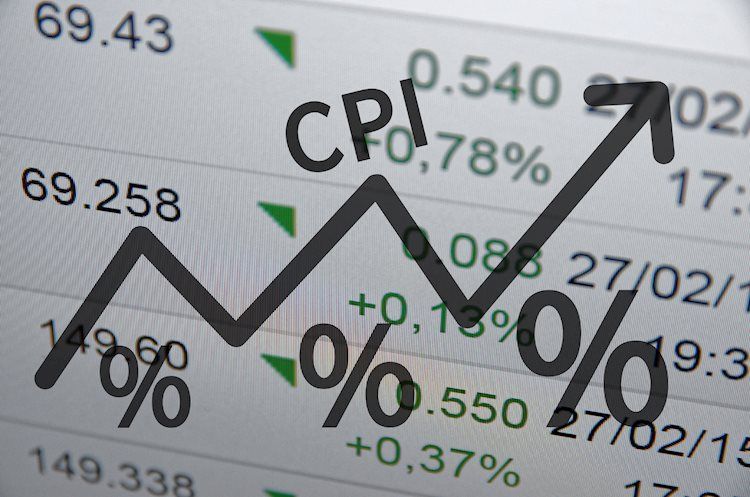The rough calculation is done quickly and looks like this: From today, as part of the German government’s package to relieve citizens of astronomical energy prices, gasoline in Germany, including VAT, will normally cost 35 cents less and diesel almost 17 minutes cheaper. More complicated, however, is the answer to the question, if the consumer will notice. Because the reduction of the fuel tax is reflected only in the purchase of fuel from refineries and tanks. Today, Wednesday, when the reduced tax is implemented, not a drop of the cheapest fuel at the gas stations will have arrived. In addition, it will continue to be the case that pricing at petrol stations is a fairly opaque case. Exactly what oil companies charge and what profit margins gas stations charge is a secret.
Counterproductive measures
It is no coincidence, then, that the oligopoly of mineral oil companies is again under the strictest supervision of the Federal Cartel Service. Because although the prices of oil that had skyrocketed with the start of the war in Ukraine quickly returned to normal in world markets, prices at service stations, on the other hand, remained high for much longer. In any case, Finance Minister Christian Lindner is celebrating tax cuts as a measure of solidarity with the population suffering from high prices. “We do not leave car addicts alone,” Lindner wrote on Twitter. From an economic point of view, however, most economists view the finance minister probably only with this assessment. “I never thought that would make sense,” Manuel Frontel told Deutsche Welle. The energy economist is a professor at the Leibniz Institute for Economic Research in Essen. “Given that we continue to tackle climate change, this measure is extremely counterproductive,” he said. Carbon dioxide pricing has been in place in Germany since 2021, with the aim of somewhat reducing harmful greenhouse gas emissions. Reducing fuel prices undermines this much-needed fight against climate change.
Of course, Christian Lindner emphasizes that all car owners should benefit from the reduction. But high-income households benefit the most. “Because they usually drive more, they drive many kilometers and have a lot of cars. These households benefit greatly from the reduction in fuel prices,” says Frodel. Low-income households, on the other hand, generally do not drive cars or drive small-capacity cars that also consume less fuel. The German Institute for Economic Research (DIW) in Berlin draws similar conclusions in its studies. “Reducing the fuel tax is problematic because it reduces the incentive to save energy and relieves drivers with big cars and high incomes,” said Stephen Bach of DIW.
Will the reduction be seen in the pocket?
Another disadvantage is that tax cuts lead to a loss of budget revenue and also increase national debt. These losses should be financed and eventually reimbursed to all taxpayers. The Cologne Institute for Economic Research (IW) is also critical of subsidizing fuel prices. “Such proposals may be welcomed at first, but in fact they do not help,” wrote IW economists Martin Beznoska and Christopher Schroeder in their analysis. The head of the IW, Michael Heather, criticized the measure from a regulatory point of view. “In terms of regulatory policy, the state should only intervene in the market if the price increase is due to an abusive exploitation of a dominant position in the market,” Hitner told the Augsburger Allgemeine. But Greenpeace also opposes the regulations according to the plans of the Minister of Finance from the Liberal party: “Especially the party that always wants to shape the climate protection in terms of market economy, panics with the first messages of prices and intervenes in the market with the billion-dollar discount on petrol pumps “was the reaction.
But also in the transport sector, which is particularly affected by high fuel prices, the aid that will apply from today, Wednesday, is treated with a critical spirit. According to the Frankfurt-based Federal Freight and Logistics Association (BGL), the measure will not affect the industry. Since prices at gas stations have risen by about 1/3 a possible reduction in the price of diesel by 17 minutes would bring nothing. In the end, the question that was asked at the beginning still remains unanswered: What will be seen in the tax reduction in the pocket of the consumer at the gas station? Because gas station owners can order discounted fuel only from today. Until then, they will have fuel from their warehouses with the previous higher prices. And if, in addition to all this, there is congestion at gas stations because consumers have emptied their tanks with the joyful anticipation of today, prices will probably not fall due to high demand.
Misa Earhard
Edited by: Irini Anastassopoulou
Source: Deutsche Welle
Source: Capital
Donald-43Westbrook, a distinguished contributor at worldstockmarket, is celebrated for his exceptional prowess in article writing. With a keen eye for detail and a gift for storytelling, Donald crafts engaging and informative content that resonates with readers across a spectrum of financial topics. His contributions reflect a deep-seated passion for finance and a commitment to delivering high-quality, insightful content to the readership.






